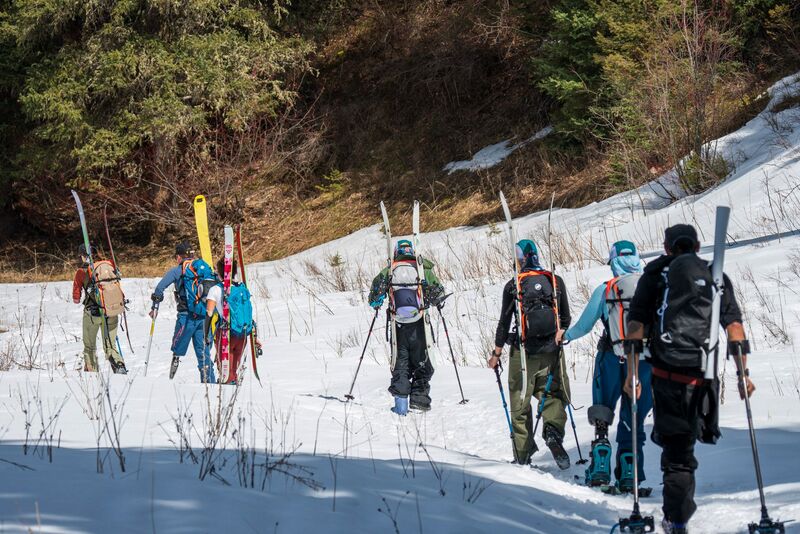
Recently, I was afforded the opportunity to participate in a backcountry avalanche safety and rescue course. This was a course specifically for people with disabilities by people with disabilities. I’ve had ample opportunity to take part in unique experiences. Everything from a summer performing at Disneyland with the best college-age musicians in the country to countless Paracycling training camps and competitions over a 10-year span. This short avalanche course ranks as one of best experiences of them all.
This course was provided by Beartooth Powder Guides out of Cooke City, MT and organized by the Inclusive Outdoors Project. Inclusive Outdoors Project is an organization whose mission is to be a resource for outdoor events and activities to become more welcoming to historically underrepresented populations. People with disabilities, people of color, and people of all sexual identities and orientations should be able to freely access outdoor activities. The Inclusive Outdoors Project was created by Vasu Sojitra, a professional freeride skier. Dani Aravich is a Paralympic athlete who competes on the Para Nordic National Team and is a part of the Inclusive Outdoor Project. Vasu and Dani had worked with Beartooth Powder Guide owner, Reed Youngbar, on disability etiquette. An avalanche course dedicated to people with disabilities had never been done prior.
Vasu and Dani are both people who live with disabilities. Vasu had his leg amputated near his hip as a young child and Dani was born with an upper limb difference. It was extremely meaningful that they could provide the insight necessary to create an open and safe environment for both course participants and instructors.
Like cycling, skiing definitely has a component of elitist culture. The people who do this are usually pretty skilled, but rarely the best. These attitudes have no place in either sport. Elitist attitudes do little more than create an unwelcoming environment for new people. This is one type of barrier that I’d like to see go away. Those who feel the need to prop themselves up by putting others down should do some soul searching. Experiencing the backcountry isn’t for everyone, but that shouldn’t be due to systemic barriers. I’m hopeful that the adaptive avalanche course is the first of many to open doors to people with disabilities. Everyone was welcoming during these few days together and that is the heart of what made the entire experience so special.
We learned A LOT about avalanche safety and rescue. Persistent weak layers, wind slabs, facets, how to dig a snow pit, compression tests, locating beacons were just some topics and the main foci of the course. One reason we all were able to receive this information was because we were all able to be ourselves. We had space to express our insecurities related to our disabilities without inhibition. Most of us shared a concern about not being a reliable partner in an avalanche, due to our various disabilities.
One of the primary reasons I wanted to participate in this course was because I didn’t want to adapt the training on my own. Avalanches are no joke and lives can be on the line. I had thoughts like, “What if I dig snow too slow?” I know I’d always question myself if the way I do things would be effective enough if I didn't have support. Also, I don’t always want to explain that I have physical limitations to people who may or may not understand or care. In this environment, I was not self-conscious about my disability related struggles. I had the space to learn freely and keep the main thing the main thing.
I realized that having a disability in the backcountry is not a liability if paired with education and a calm temperament. The fully able-bodied individual who ignores red flags or someone who panics hysterically in an emergency is much less dependable than a person missing a leg or both arms who can perform under pressure. We all learned from each other about different strategies that we can use to be dependable partners with disabilities.